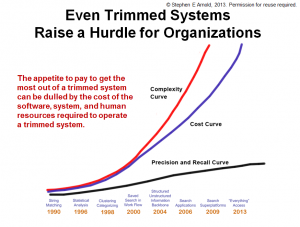
People are raving about this as a possible alternative command and control system for the public to use.
Civilized Discourse Construction Kit
Jeff Atwood
Coding Horror, February 5, 2013
EXTRACT:
After spending four solid years thinking of discussion as the established corrupt empire, and Stack Exchange as the scrappy rebel alliance, I began to wonder – what would it feel like to change sides? What if I became a champion of random, arbitrary discussion, of the very kind that I'd spent four years designing against and constantly lecturing users on the evil of?
I already built an X-Wing; could I build a better Tie Fighter?
Today we announce the launch of Discourse, a next-generation, 100% open source discussion platform built for the next decade of the Internet.
 The goal of the company we formed, Civilized Discourse Construction Kit, Inc., is exactly that – to raise the standard of civilized discourse on the Internet through seeding it with better discussion software:
The goal of the company we formed, Civilized Discourse Construction Kit, Inc., is exactly that – to raise the standard of civilized discourse on the Internet through seeding it with better discussion software:
- 100% open source and free to the world, now and forever.
- Feels great to use. It's fun.
- Designed for hi-resolution tablets and advanced web browsers.
- Built in moderation and governance systems that let discussion communities protect themselves from trolls, spammers, and bad actors – even without official moderators.
Our amazingly talented team has been working on Discourse for almost a year now, and although like any open source software it's never entirely done, we believe it is already a generation ahead of any other forum software we've used.
Continue reading “Michel Bauwens: Civilized Discourse Construction Kit”







